- JST Home
- /
- Strategic Basic Research Programs
- /
 CREST
CREST- /
- Research Director/
- Exploring the Potential of Ocean Blue Carbon Through Investigation of Ocean and Carbon Cycling Interactions/
- [Carbon-Blue X] Year Started : 2023
[Carbon-Blue X] Year Started : 2023
Hiromichi Igarashi
Development of a novel digital twin for blue carbon sequestration by seagrass and macroalgal beds
Grant No.:JPMJCR23J1
Research Director
Hiromichi Igarashi
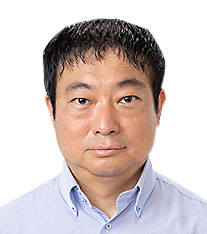
Group Leader
Research Institute for Value-Added-Information Generation
Japan Agency for Marine-Earth Science and Technology
Collaborator
| Masaaki Iiyama | Professor Faculty of Data Science Shiga University |
| Masahiro Nakaoka | Professor Field Science Center for Northern Biosphere Hokkaido University |
| Masakazu Hori | Head, Group Fisheries Resources Institute Japan Fisheries Research and Education Agency |
| Toshihiro Miyajima | Assistant Professor Atmosphere and Ocean Research Institute The University of Tokyo |
Outline
In this project, we develop a digital twin for blue carbon sequestration by seagrass and macroalgal beds around Japan coastal area by integrating field observation of seagrass and macroalgal production and export, oceanographic observation by RV, chemical analyses of sediment and water samples, decomposition experiments for tracing the fate of organic carbon derived from seagrasses and macroalgae, and ocean numerical model simulation experiments. And we aim to contribute to policy making for climate change adaptation and mitigation through generating information of accurate estimation of present and future blue carbon mass transport from the seagrass and macroalgal beds around Japan coastal area to the sequestration reservoirs in open ocean.
Haruko Kurihara
Advanced prediction and risk detection and of costal ecosystem transition under high CO2 world
Grant No.:JPMJCR23J2
Research Director
Haruko Kurihara
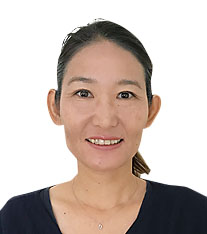
Professor
Faculty of Science
University of the Ryukyus
Collaborator
| Takashi Nakamura | Associate Professor School of Environment and Society Institute of Science Tokyo |
| Nina Yasuda | Professor Graduate School of Agricultural and Life Sciences The University of Tokyo |
| Hiroya Yamano | Senior Principal Researcher Biodiversity Division National Institute for Environmental Studies |
Outline
This project is consisted by four groups; ecophysiology, molecular ecology, modelling and social adaptation group. Here we aim to develop 1. Multi-Environmental Simulation Aquatic System (MESAS) and evaluate biological response to environmental change, 2. Stress detection technology using environmental RNA, 3. Integrated coastal ecosystem model and predict the ecosystem transition, and we will practice 4. Social adaptation under biodistribution and ecosystem change at high CO2 world.
Toshio Suga
Elucidation of CO2 absorption and storage mechanism of subtropical mode water by Argo
Grant No.:JPMJCR23J3
Research Director
Toshio Suga
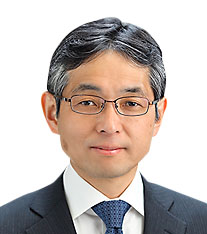
Professor
Graduate School of Science
Tohoku University
Collaborator
| Hajime Kayanne | Project Researcher Graduate school of Engineering The University of Tokyo |
| Shigeki Hosoda | Group Leader Global Oceanic Environment Research Group, Research Institute of Global Change Japan Agency for Marine-Earth Science and Technology |
Outline
We aim to resolve mesoscale (~monthly/~100 km) and submesoscale (~weekly/~10 km) phenomena related to CO2 absorption and storage with the seasonal cycle being captured. For that purpose, we will conduct multi-parameter high-frequency profile observations in the northwestern subtropical gyre (around Ogasawara Islands), where the physical processes in the upper ocean are best understood. We will conduct cross-disciplinary research by obtaining high-frequency time series data for multiple years and combining them with existing field and satellite observations.
Koji Suzuki
Changes in the dynamics of microalgae unraveled by wide-area, frequent, high-precision observations
Grant No.:JPMJCR23J4
Research Director
Koji Suzuki
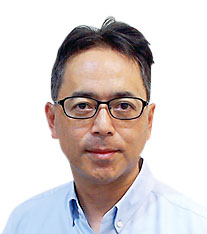
Professor
Faculty of Environmental Earth Science
Hokkaido University
Collaborator
| Hisashi Endo | Associate Professor Institute for Chemical Research Kyoto University |
| Shin-Ichiro Nakaoka | Senior Researcher Earth System Division National Institute for Environmental Studies |
| Shinji Nakaoka | Professor Faculty of Advanced Life Science Hokkaido University |
Outline
As anthropogenic carbon dioxide increases, there is concern about changes in the dynamics of microalgae (phytoplankton), the major primary producers in the ocean. Through unprecedented, highly frequent, and high-precision observations using cooperating merchant and research vessels, this project aims to understand seasonal and interannual changes in the abundance, community composition, and productivity of phytoplankton playing an essential role in the carbon sequestration in the highly productive North Pacific mid-to-high latitude region among the world’s oceans, and to clarify the effects of warming and ocean acidification on these quantitatively.
Ryosuke Makabe
Exploring the Southern Ocean carbon cycle by imaging and AI technologies
Grant No.:JPMJCR23J5
Research Director
Ryosuke Makabe
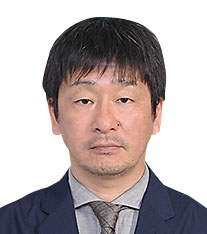
Associate Professor
National Institute of Polar Research
Inter-university Research Institute Corporation Research Organization of Information and Systems
Collaborator
| Daiki Nomura | Professor Faculty of Fisheries Sciences Hokkaido University |
| Seiji Yamada | Professor Faculty of Informatics Kanagawa University |
Outline
The aims of this project are (1) to develop an automated surface water monitoring system for observing plankton community with high resolution, (2) to understand key processes of retention and export of particulate organic matters, (3) to reveal long-term changes in marine environments and response of zooplankton community. Through these studies, we will establish the innovative methods for quantitative observation of the Southern Ocean ecosystem and the carbon cycle, including long-term change in zooplankton community structure. These new methods, which can be applied to the other oceans, will contribute to further understanding of the role of biological processes for global carbon cycle.
Yusuke Yokoyama
Developing efficient analytical method of radiocarbon in water samples
Grant No.:JPMJCR23J6
Research Director
Yusuke Yokoyama
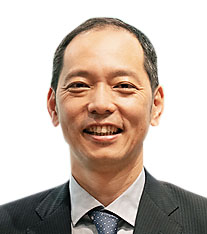
Professor
Atmosphere and Ocean Research Institute
The University of Tokyo
Collaborator
| Naohiko Ohkouchi | Director-General Research Institute for Marine Resources Utilization Japan Agency for Marine-Earth Science and Technology |
| Yasuhiko Yamaguchi | Senior Researcher Systems Analysis Division Lake Biwa Environmental Research Institute |
Outline
Radiocarbon (C-14) is an extremely powerful tool as a tracer of the carbon cycle, as it can provide the age of the carbon itself (i.e. the time since it was removed from the atmosphere). However, due to its scarcity in the environment, these methods require large quantities of samples and long preparation times in the laboratory before the actual identification of its abundance using mass spectrometry. This research will develop techniques to achieve trace and rapid analysis of C-14, thereby developing a world-leading toolbox for elucidating the carbon cycle in the hydrosphere, including the oceans, from Japan.













